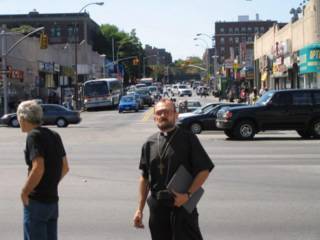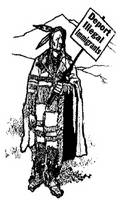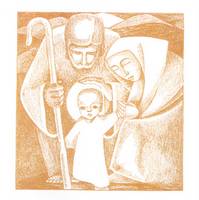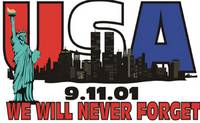PPP -- Our Response: "Jansenist Heresy"
[This addendum, as referenced in the "TIME-LINE" blog below, explains our positions regarding the FALSE historical charges against the Ultrajectine Catholics.]
The theological principles and alleged "heresy" of Jansenism derived its name from +Cornelius Otto Jansen, (1685-1636, portrait ABOVE) Bishop of Ypres, Belgium, near France. Two years after he reposed, his friends and colleagues posthumously published his studies in 1640 as "Augustinus."
Jansenism was not a Dutch "sect" as feared. Rather, it was a radical Augustinian movement by conscientious extremists who fled from their persecutors to Holland where they found sanctuary. Jansenism took root in France, especially among the clergy. There it early became involved with Gallicanism and high officials of Church and State in Europe often sided with Jansenists to thwart the Holy See.
This backlash to the vigorous Counter-Reformationists in RC chanceries was considered as dangerous and obstinent by monarchs, temporal rulers and bishops alike. Although Jansenism was immediately condemned by Pope Urban VIII in 1642 and again by Pope Innocent X in his bull Cum occasione of 1653, it was prevalent from 1640 to 1801 (when it died out as counter movements usually and rightfully do). However, for what it was worth, it held the necessity of the Roman Catholic Church for salvation and opposed justification by faith alone.
The Alleged “Heresy”:
Jansen contended that the Catholic theologians of the Counter-Reformation attacked Martin Luther's doctrines of grace by erring in the opposite direction: over-emphasizing human responsibility and denigrating Almighty God's initiative. His followers likewise held that the Counter-Reformationists had lapsed into the Pelagian heresy (that all men can achieve salvation entirely by their own merits) which St. Augustine had battled centuries before.
They also taught that the Christian life was "...a serious life, a life of toil and not of diversion, play or pleasure" so that one ought never to forget that it "should be filled with some useful and sober occupation suitable for one's state of existence." It was bad enough that these overly sober Christians, like the Lutherans and Calvinists of their period, de-emphasized free will, advocated a Protestant doctrine of predestination and discounted the idea that Christ died for all men, but their main cause of rebuke was that they took themselves too seriously; were too austere and basically pessimistic. To them, the world was irretrievably corrupt. They led lives of total retreat and excessive religious puritanism. Nobody ever liked a party pooper - especially the holy roller kind.
The charged heresy (which the RCC now calls “errors”) itself can be summed up in a few principle points. Jansen goes against the orthodox Roman Catholic doctrine regarding freedom of the will. He also "denied the existence of sufficient grace, maintaining that all interior grace is irresistible". Jansen also denied that Jesus died for all of mankind and that He only died for those destined to be saved which links itself to the free will doctrine.
Therefore, the ORCC (and the Old Catholics too for that matter) AGREES that the theoretical propositions of Jansenism as condemned by Popes Urban VIII and Innocent X are indeed erroneous. In practice, Jansenism refers to a system of penitential rigorism including long periods of abstinence from the Sacraments. Apart from a few locations in France it was never widely influential, and if it exists today at all, it is found only among excessively rigorist traditionalist Catholics, usually by the sede vacantist fringe group fanatics.
We REBUKE Jansenism:
In and of itself, this “heresy” (as the popes once defined it) can NOT be linked to us. As always, we believe in the doctrine of Free Will and that Christ came to save all of mankind. We DENY that grace is accorded only to the elect few while the masses are condemned to eternal perdition. Unless we have the Gift of free will to choose right from wrong then how else can we be saved? How can we make a change in our lives to choose God if we are already predestined to fail? No, this is NOT a "heresy" that we ever subscribed to.
One of the main reasons we're ordained is to call people back to God and to preach and teach the Word of God, freely to all of mankind because we are all called to be saved. It's our free choice whether or not to accept The Holy Trinity. God does not choose to deny us. We choose to deny Him if we choose to reject Christ.
SUPPORT of our Ultrajectine Positions:
On the heels of ultramontane Catholic condemnation of us ultrajectine Catholics as "heretics" came our World Wide Support. Public indignation and loud protests were unbounded. The just cause of the Church of Utrecht was supported and defended by many cardinals, the Empress Maria Theresa, the Ecclesiastical Council, the Court of Spain, the Court of Naples, the Tuscan Church, nearly all of the religious orders, the See of Salzburg, the Universities of Louvain and Sienna, forty doctors of the Sorbonne and a very large number of bishops and ecclesiastics from all parts of the world. All of them decried the false charges and censures lodged against us.
However, as much as our global support escalated and reverberated, it fell on deaf ears within the fortified Vatican walls - until lately... Then suddenly and QUIETLY (with faces as red as their soutanes, I'm sure) this alleged "heresy" was silently down-graded to errors. Regardless, we NEVER owned them anyway. So thanks for nothing.
....I can still recall reading these words from a national Catholic press editorial which I gobbled up many years ago: "THE TRAGEDY OF SCHISMS" ---
"The Catholic schismatic is proud of NOT being a schismatic. The real schismatic, in his mind, is the parent Church, which has severed communion with him, and therefore, he thinks, with the ancient Church with which he identifies himself. This was true of the Jansenists, whose teaching originated in the Low Countries with Bishop Cornelius Jansenius. This Dutch theologian wasn't a heretic, but he taught doctrines approaching error..."
[However, that Catholic press editorialist and contributing editor, opining for his national newspaper within "The Faith" section, himself erred by adding...
".... Jansenism, which played an important part in French history during the 17th and 18th centuries doesn't survive as a sect today, save perhaps in Holland, where it goes under the name of "the Old Roman Catholics" who as recently as 60 years ago numbered 8,000 souls."
Note that however "charitable", even he wrongfully alluded to this extremist movement as a "sect" (cf. 2nd paragraph above) and wrongfully attributed to us. And not only did he have his figures wrong, but the ultrajectine Church in Holland is now OLD CATHOLIC -- not "ORC" -- and had been for more than a century.]
"The great tragedy of schisms is that they seldom heal. Even the Dutch Jansenists have lost hardly any followers to Catholicism, though their creed, which included belief in the unity of all Catholics under the Pope, is scarcely to be distinguished from that of Catholic loyalists..."
....But even if +Lefebvre's traditionalism did arise from Jansenists influence, we should remember that not all Jansenists tenets of belief were wrong, and that the sect numbered among its adherents Blaise Pascal (1623-62) whose "Pensees" ("Thoughts on Religion") offered many profound and well-expressed insights on our Faith. And Pascal died in The Church...."
"....In our zeal to cement bonds with Protestants, Jews and fallen-aways of various sorts, let's not overlook the "schismatics. They often have a deep faith that many smug believers who have remained within The Church might emulate. John Paul II has recently promised +Lefebvre sympathizers that he will honor many of their traditionalist needs -- especially the Mass they love so much. The rest of us should follow his lead.
Now is the time to woo these "schismatics" back to a Church they didn't want to leave in the first place."
("The Tragedy of Schisms" by Paul Hallet, National Catholic Reporter, July 31, 1988, pg. 5.)
Recommended Reading:
Leszek Kolakowski, "God Owes Us Nothing: A Brief Remark on Pascal's Religion and on the Spirit of Jansenism" (Chicago, 1998) {at Amazon.com}.
William Doyle, "Jansenism: Catholic Resistance to Authority from the Reformation to the French Revolution" (Palgrave, 2000) {at Amazon.com}.
Lucien Goldmann, "The Hidden God: A Study of the Tragic Vision in the Pensees of Pacale and the Tragedies of Racine" (French publication, 1955; English translation by Philip Thody, London: Routledge and Kegan Paul, 1964).
"Behold how good and how pleasant it is for brethren to dwell together in unity." (Ps. 132.1) "The fruit of justice is sown in PEACE to them that make PEACE." (Jas. 3:18) "Blessed are the PEACE makers; for they shall be called the children of God." (Matt. 5:9) “I beseech you [to be] careful to keep the unity of the Spirit in the bond of PEACE." (Eph. 4:5) "God is not the God of dissension, but of PEACE: as also I teach in all the churches of the saints." (I Cor. 14:33) "Let us follow after the things that are of PEACE, and keep the things that are of edification one towards another." (Rom. 14: 18) "Have salt in you, and have PEACE among you." (Mark 9: 49)

































































0 Comments:
Post a Comment
<< Home